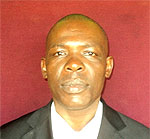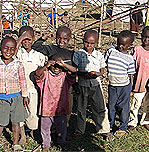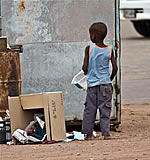New schools in Tanzania have triggered an explosion in the demand for secondary school education. A 400 per cent increase in enrolment in only four years has taxed the educational infrastructure. The schools cannot cope with the numbers of new students, and the country now needs 85,000 more teachers. The Tanzanian government has launched a powerful public-private partnership scheme called “Tanzania Beyond Tomorrow”. International technology […]
Field Stories
How ‘Kachile’ creates ‘digital opportunities’ in Côte d’Ivoire
Encouraging entrepreneurial spirit and a desire to develop a sustainable and responsible economy are the driving force behind Kachile, a new enterprise trading for social and environmental purposes in Côte d’Ivoire. It is a significant achievement in a fragile country, still suffering from the trauma of conflict and lacking in confidence. Kachile develops pilot projects with a view to unlocking potential and uses […]
African ministers pass ICT directive
African countries have to balance their spending on Information and Communication Technologies (ICTs) for education better. Skills development among teachers, which accounts for only 10% of most countries’ ICT budgets, has to be strengthened. Spending on costly hardware, which covers 90% of most countries budgets, should rather be reduced. This is one of the key recommendations of a communiqué released by participants in the […]
SchoolNet Africa and Shafika Isaacs
Shafika Isaacs, founding Executive Director of SchoolNet Africa, the network that links education policymakers, teachers and learners in 31 African countries, has been a Senior Programme Officer for the International Development Research Centre and an independent consultant on ICTs for development in Africa for many years. As a South African member of eLA’s Organising Committee, she looks back at the development of ICTs […]
Digital lessons at Copperbelt College
Lyson Chikunduzi, mathematics lecturer at Zambia’s Copperbelt College of Education, reports that all last year’s college graduates were able to use a computer to present their lessons.
Ajegunle – Where ICT enriches the poor
Two Nigerian teenagers had never touched a computer keyboard before they joined a learning programme known as the Ajegunle.org Capacity Building Exercise. Nwanyiego Ijeh, a girl known as Ego, and a young man, James O. Raphael, lived and worked in Ajegunle, a dangerous part of Lagos, populated by three million people from all the tribes of West Africa. This year, former Ajegunle trainees will […]
Bridging the electricity gap in rural Kenya
They call it a mobile internet kiosk. It’s nothing more than an old car battery wired through a cheap electrical inverter to an ancient personal computer. The three items are loaded onto a hired handcart and delivered by manpower to the “very back of beyond” in Western Kenya.
Peacemaking with eLearning in Kenya
In Kenya’s remote North Rift, the eLearning project “Good School Neighbours” is helping to bring peace to armed and nomadic peoples. The project gives students, teachers and opinion-makers the chance to encourage dialogue and peaceful co-existence between the feuding rural communities in this vast, arid region, home to around 1.8 million people, where armed cattle-rustling has been a way of life.
Lessons learned from SADC’s open and distance learning project
With a geographic base in nine southern African countries, financial underpinnings of about fifteen million Units of Account (1 UA = 1 US$1.48) from the African Development Fund, and a mature development strategy, the Open and Distance Learning Project launched by the Southern African Development Organization (SADC) secretariat in 2007 provides a paradigm for how a large-scale capacity-building effort should come into being. The […]
ICTs are empowering street children in Kenya
A pioneering project aimed at training ICT skills is transforming the lives of children who live in the streets of Eldoret, an agriculturally rich town in Kenya’s lush Rift Valley region. Led by SNV, a Dutch development agency, in collaboration with the “Ex-Street Children Community Organisation” (ECCO), a group of formerly homeless young people, the initiative provides street children with basic computer skills, thereby […]




























